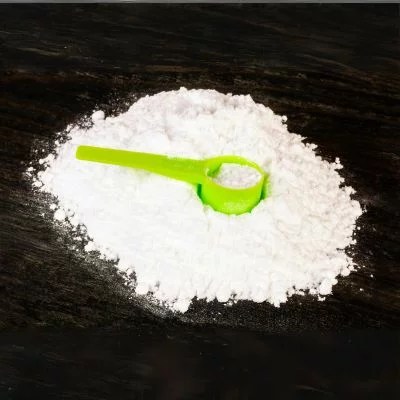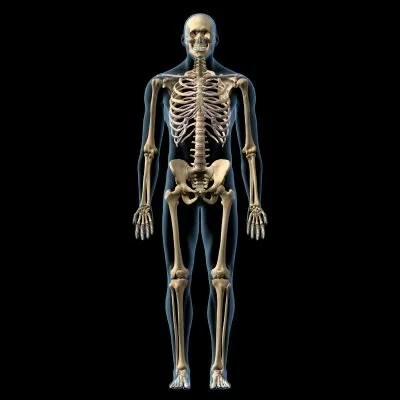Introduction to Creatine: Understanding its Impact and Duration in Your System
Welcome to the Super Achiever Club, a platform dedicated to the nexus of self-improvement in health, wealth, and social dynamics. Today, we dive into the world of creatine, a topic of substantial interest to our community of free-thinking super achievers.
Contents
Creatine, a naturally occurring compound in our bodies and a popular supplement, is renowned for its significant role in improving athletic performance, enhancing muscle growth, and potentially benefiting cognitive functions. For a detailed understanding of what creatine is, consider reading our article on What is Creatine?.
In this discussion, we specifically focus on unraveling the mysteries surrounding the duration of creatine in the human body. We aim to address key questions: how long does it take for creatine to leave the system, how long does it last in your system, and what happens after you stop taking it.
Importance of the Topic

Understanding the duration of creatine in the system is vital for several reasons:
- Athletic Performance: Athletes often cycle creatine for optimal performance. Knowing how long it stays in the system aids in planning training and recovery phases. Check out our resources on the Best Creatine for Athletes.
- Health and Safety: For fitness enthusiasts and those using creatine for health benefits, understanding its longevity in the body is crucial for safe supplementation. Read more about the Best Practices in Creatine Supplementation.
- Medical Insight: Medical professionals need to be aware of creatine’s duration in the system, especially when considering its effects on kidney function and potential interactions with medications. Our detailed analysis on Creatine and Kidney Health offers more insights.
- Research and Development: For those in the field of nutritional science and supplement development, this knowledge is key in designing effective and safe products. Explore our collection of Creatine Research Studies.
- Personalized Health Strategies: As we embrace a more individualized approach to health and fitness, understanding how long creatine remains active in different bodies is essential. This aligns with our philosophy at Super Achiever Club, where we emphasize tailored health strategies for each individual.
By the end of this exploration, you’ll have a comprehensive understanding of creatine’s timeline in the human body, empowering you to make informed decisions about its use in your journey toward becoming a super achiever. Stay tuned as we delve deeper into the science, myths, and facts about creatine’s duration in your system.
What is Creatine? Understanding Its Role and Benefits
Definition and Nature
Creatine is a compound that plays a pivotal role in energy production within the human body. Predominantly found in muscle cells, it’s involved in producing adenosine triphosphate (ATP), the primary energy currency of the cell. This makes it an essential element in driving short-burst, high-intensity activities.
- Chemical Nature: Creatine is a tripeptide, composed of three amino acids: arginine, glycine, and methionine.
- Biological Function: It helps recycle ATP in muscle and brain tissue, enhancing cellular energy production and modulation.
For a deeper understanding, explore our article on How Does Creatine Work?.
Sources of Creatine
Creatine is not just a supplement; it’s also found in various dietary sources:
- Natural Sources: Red meat and fish are excellent sources of creatine. However, the amount obtained from diet alone is often less than what can be achieved through supplementation.
- Supplementation: Various forms like creatine monohydrate, creatine HCL, and micronized creatine provide higher doses. Each form has its specific benefits, which you can explore in our guides on Best Creatine Supplements and Creatine HCL vs Monohydrate.
Uses in Health and Fitness
Creatine’s benefits span across various aspects of health and fitness:

- Sports Performance: It’s well-known for enhancing strength, power, and muscle endurance, making it a staple in athletes’ regimens. Read more about this in Creatine for Muscle Growth.
- Muscle Growth: Creatine aids in muscle hypertrophy, not just through energy production but also by increasing water content in muscles, leading to a rapid increase in muscle size.
- Overall Health Benefits: Beyond muscle, creatine is being researched for its potential benefits in neurological health, aging, and cognitive function. Our article on Creatine Benefits delves deeper into these aspects.
Metabolism and Absorption of Creatine: A Deep Dive
Absorption Process
Creatine absorption is a fascinating process that plays a critical role in how effectively it works in our bodies.
- Oral Intake: When you ingest creatine, either through food or supplements, it passes through your stomach and is absorbed into the bloodstream via the small intestine.
- Transport Mechanism: A specific transporter, the SLC6A8 transporter, facilitates the entry of creatine into cells.
- Bioavailability: The bioavailability of creatine, particularly from supplements like Best Creatine Pills & Capsules, is high, ensuring efficient absorption into the bloodstream.
Metabolism in the Body
Once absorbed, creatine plays a vital role in energy metabolism.
- Storage: The majority of absorbed creatine is stored in your muscles, where it binds with phosphate to form creatine phosphate.
- Energy Production: During high-intensity exercise, creatine phosphate donates its phosphate group to ADP to form ATP, the energy currency of the cell. This process is rapid and crucial for activities requiring short bursts of energy.
- Creatine Kinase: The enzyme creatine kinase facilitates the conversion between creatine and creatine phosphate. For more on this, see Creatine Kinase.
Factors Influencing Absorption and Metabolism

Several factors can influence how your body absorbs and metabolizes creatine:
- Age: Older adults may have a slower absorption rate due to reduced muscle mass and potential changes in digestive efficiency.
- Diet: A diet high in protein can naturally increase creatine levels. Vegetarians might experience more significant effects from supplementation due to lower baseline levels of creatine.
- Muscle Mass: Individuals with more muscle mass may store more creatine, altering the dynamics of absorption and storage.
- Physical Activity Levels: Regular exercise can increase the muscle’s capacity to store creatine, potentially altering its absorption and metabolism.
How Long for Creatine to Leave the System: An In-depth Analysis
Average Elimination Half-Life
The concept of half-life is central to understanding how long creatine stays in your system.
- Definition: Half-life is the time taken for the concentration of a substance in the body to reduce to half its original value.
- Creatine Half-Life: For creatine, this period varies, but studies suggest an average elimination half-life of around 3 hours. This means that it takes about 3 hours for the level of creatine to drop to half in your bloodstream after absorption.
- Total Clearance: Despite this short half-life, total clearance from the body, particularly from muscle tissue, can take significantly longer, often several weeks.
For a comprehensive understanding, explore our detailed article on How Long Does Creatine Stay in Your System.
Factors Affecting Clearance Rate
The rate at which creatine leaves the body isn’t uniform for everyone. Several factors play a role:
- Kidney Function: The kidneys play a crucial role in filtering creatine out of the bloodstream. Variations in kidney function can significantly impact clearance rates.
- Muscle Mass: Individuals with more muscle mass may have more creatine stored, potentially affecting how quickly it’s cleared.
- Hydration and Diet: Adequate hydration can facilitate quicker elimination. Dietary factors, like the consumption of other supplements or nutrients, can also play a role.
- Exercise Intensity: Regular, high-intensity exercise may increase the turnover and usage of creatine, potentially altering its clearance rate.
Implications for Different Users

The clearance rate of creatine can have different implications for various users:
- Athletes: Athletes, especially those in sports requiring short bursts of intense activity, may experience quicker turnover of creatine due to higher usage rates. This can mean a faster clearance from the body, necessitating a consistent supplementation strategy, as discussed in our article on Creatine for Athletes.
- Non-Athletes: For non-athletes or those engaged in less intense physical activity, creatine may persist longer in the system. This slower turnover might require a different supplementation approach, possibly with lower doses or less frequent intake.
Duration of Creatine in the System: Analyzing Short-Term and Long-Term Usage
Short-term Usage
During the initial weeks of creatine supplementation, its presence in the body undergoes significant changes.
- Rapid Increase in Levels: When you start taking creatine, especially during a loading phase, levels in your muscles increase substantially.
- Saturation Point: After a few days to a week, your muscle creatine stores reach a saturation point. This means they can’t hold any more creatine, and any excess is excreted.
- Persistence Post-Saturation: Once saturated, the elevated muscle creatine levels persist for a short period, typically a few weeks, depending on your diet, exercise regimen, and the body’s natural creatine turnover rate.
- Elimination: Without continued supplementation, the extra creatine begins to leave the system. However, this decline isn’t immediate but gradual, over several days to weeks.
For specific guidelines on how to take creatine effectively, refer to How to Take Creatine.
Long-term Usage
Long-term creatine supplementation alters the dynamics of how creatine is stored and utilized in the body.

- Muscle Memory: With prolonged use, muscles may develop a ‘memory’ for creatine, potentially leading to more efficient storage and utilization.
- Stable Levels: Over time, the body adjusts to a new equilibrium of creatine levels, maintaining a relatively constant concentration in the muscles.
- Ceasing Supplementation: Interestingly, after long-term use, when supplementation stops, the decline in muscle creatine levels is slower compared to short-term usage. This is possibly due to the enhanced storage capacity developed over time.
- Total Clearance Time: It might take several weeks, or even months, for creatine levels to return to baseline after long-term supplementation.
For insights into different creatine products and how they affect duration, check out Best Creatine Supplements.
After Stopping Creatine: Understanding the Timeline
Immediate Effects Post-Cessation
The body’s initial response to stopping creatine supplementation can be subtle but significant.
- Reduction in Water Retention: Creatine increases water retention in muscle cells. Upon cessation, this effect diminishes, leading to a slight decrease in muscle size and weight.
- Energy Production Shift: Your muscles might take a short period to adjust to the reduced levels of creatine phosphate, which could temporarily impact high-intensity performance.
- No Immediate Strength Loss: Contrary to popular belief, the immediate cessation of creatine does not lead to an instant loss of strength.
For more on managing supplementation, see How to Take Creatine.
Gradual Decrease in Levels
After stopping creatine, the levels decrease gradually, not abruptly.
- Phase 1 – Slow Decrease: Initially, the decrease is slow as the creatine stored in muscles is used up.
- Phase 2 – Steady Decline: As the stored creatine gets depleted, the decline becomes more steady and noticeable.
- Return to Baseline: Eventually, muscle creatine levels return to their baseline – the level they were at before supplementation started.
Discover more about the effects of creatine on muscle in Best Creatine for Muscle Growth.
Complete Elimination
The time frame for complete elimination of creatine from the body varies.

- Typical Duration: It generally takes around 4 to 6 weeks for creatine levels to return to normal after you stop taking the supplement.
- Factors Influencing Elimination: This duration can be influenced by factors like your muscle mass, initial creatine levels, and kidney function.
- No ‘Detox’ Needed: The body naturally clears creatine, so no special detoxification process is necessary.
For a broader understanding of creatine’s impact, refer to Creatine Side Effects.
Special Considerations and Health Implications of Creatine
Impact on Kidney and Liver Functions
Creatine’s effects on kidney and liver health have been a subject of considerable interest and research.
- Kidney Function: While creatine is generally safe, there is a concern about its impact on the kidneys, especially in individuals with pre-existing kidney conditions. Creatine supplementation can increase creatinine levels, a marker used to assess kidney function, which might be misinterpreted as kidney damage. However, for healthy individuals, research suggests no detrimental effect on kidney health. For more, see Creatine and Kidney Health.
- Liver Health: Similar to the kidneys, liver health concerns stem from the metabolism of creatine. Studies indicate that in healthy individuals, creatine does not impair liver function. However, those with existing liver conditions should consult healthcare providers.
Considerations for Specific Populations
Different groups may have unique considerations regarding creatine use.
- Athletes: For athletes, particularly those in strength and power sports, creatine is beneficial. But, they should monitor dosage and hydration levels. See Best Creatine for Athletes.
- Elderly: The elderly may benefit from creatine for muscle health and cognitive function, but they should start with lower doses due to potential kidney sensitivity.
- Pre-existing Conditions: Individuals with pre-existing kidney or liver conditions should approach creatine with caution and medical guidance.
Myths vs. Facts
Let’s debunk some common misconceptions about creatine.

- Myth: Creatine causes kidney damage.
- Fact: In healthy individuals, creatine has not been shown to damage the kidneys.
- Myth: Stopping creatine will cause rapid muscle loss.
- Fact: Muscle creatine levels decrease gradually, and any change in muscle mass is more related to water retention than actual muscle loss.
- Myth: Creatine is a steroid.
- Fact: Creatine is not a steroid; it’s a naturally occurring compound in the body. More on this at Is Creatine a Steroid?.
For a comprehensive understanding of creatine’s safety, refer to Is Creatine Safe?.

Personal Opinion & Experiences
For whatever reason you might ditch creatine consumption – always keep in mind that it’s a quite slow process and can take some weeks until the creatine levels in your body normalize. And if you are an athlete in a sport where creatine is banned also keep in mind that excessive meat consumption can also ramp up your creatine levels to the same levels as taking it as a supplement.
– Felix Hesse (Founder of SAC)
Finding the Best Creatine for You
So now you know how long creatine stays in your system. But have you found the best creatine to fit your personal needs already? This is not an easy task to do. And that’s why we created specific guides for different forms & all your needs:
| Best Creatine Supplement | Best Creatine for Men |
| Best Creatine Brand | Best Creatine for Women |
| Best Creatine Monohydrate (Powder) | Best Creatine for Muscle Growth & Bodybuilding |
| Best Creatine Powder | Best Creatine for Teens |
| Best Creatine Pills & Capsules | Best Creatine for Bulking & Weight Gain |
| Best Creatine Gummies | Best Creatine for Athletes |
| Best Creatine HCL | Best Creatine for Beginners |
| Best Creatine Creapure | Best Creatine for Weight Loss & Cutting |
| Best Vegan Creatine | Best Creatine for Glute Growth |
| Where to Buy Creatine | Best Creatine for Older Adults |
The Science Behind It
Whenever possible we base our articles on scientific research & studies on Creatine.
Want to know more about it? Visit our dedicated page:

Conclusion: Mastering Creatine for Optimal Performance and Health
Summary of Key Points
- Absorption and Metabolism: Creatine is efficiently absorbed and stored in muscle tissue, playing a pivotal role in energy production, especially for high-intensity activities.
- Duration in the System: The duration of creatine in the system varies; it has a relatively short elimination half-life in the bloodstream but can remain in muscle tissue for much longer.
- Post-Cessation Effects: After stopping creatine, its levels decrease gradually over several weeks, with no immediate adverse impact on muscle strength.
- Health Implications: Creatine is generally safe for most individuals, but those with pre-existing kidney or liver conditions should exercise caution.
- Myths vs. Facts: Common misconceptions, such as creatine causing kidney damage or being a steroid, are debunked, emphasizing the need for informed supplementation.
Final Recommendations
- Tailored Supplementation: Align creatine usage with your fitness goals, considering factors like exercise intensity, muscle mass, and overall health status.
- Monitoring and Adjustment: Regularly monitor your body’s response to creatine, adjusting the dosage as needed. For guidance on dosages, visit How Much Creatine Should I Take?.
- Hydration and Diet: Maintain adequate hydration and a balanced diet to maximize the benefits of creatine. Explore What Foods Have Creatine for dietary sources.
- Consultation for Special Cases: Those with health conditions or unique dietary requirements should consult healthcare professionals before starting or stopping creatine.
- Continuous Learning: Stay informed about the latest research and developments in creatine supplementation for optimal benefits.
References

Scientific Studies and Clinical Trials
- A comprehensive collection of research studies and clinical trials can be found at Creatine Research Studies.
Expert Opinions and Reviews
- Insights from sports medicine and nutrition experts are integral to our understanding and are continuously updated in our resources, such as Best Creatine Supplements and Creatine Benefits.
🌟 Final Thought: Creatine, when used wisely and informed by science, can be a powerful tool in your health and fitness arsenal. As part of the Super Achiever Club, you’re now equipped with the knowledge to use creatine effectively and safely, propelling you towards your goals of becoming a super achiever in health, wealth, and social dynamics.
Stay empowered, informed, and on the path to peak performance and health!



